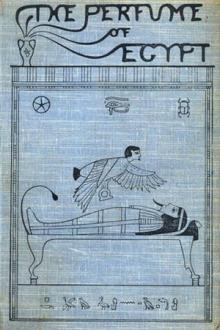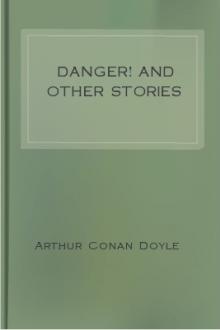Genre Short Story. Page - 15

le. He led a wicked life, and was killed by one of his own men while hunting in the forest.
And Henry, the Handsome Scholar, had not only the chest of gold for his own, but he became by and by the King of England and the ruler of all the lands that his father had had in France.
THE WHITE SHIP.
King Henry, the Handsome Scholar, had one son, named William, whom he dearly loved. The young man was noble and brave, and every-body hoped that he would some day be the King of England.
One summer Prince William went with his father across the sea to look after their lands in France. They were wel-comed with joy by all their people there, and the young prince was so gallant and kind, that he won the love of all who saw him.
But at last the time came for them to go back to England. The king, with his wise men and brave knights, set sail early in the day; but Prince William with his younger friends waited a little while. They had had so joyous a time in France that they were in no

he parish sexton. Bob Martin was held much in awe bytruant boys who sauntered into the churchyard on Sundays, to read thetombstones, or play leap frog over them, or climb the ivy in search ofbats or sparrows' nests, or peep into the mysterious aperture under theeastern window, which opened a dim perspective of descending stepslosing themselves among profounder darkness, where lidless coffins gapedhorribly among tattered velvet, bones, and dust, which time andmortality had strewn there. Of such horribly curious, and otherwiseenterprising juveniles, Bob was, of course, the special scourge andterror. But terrible as was the official aspect of the sexton, andrepugnant as his lank form, clothed in rusty, sable vesture, his small,frosty visage, suspicious grey eyes, and rusty, brown scratch-wig, mightappear to all notions of genial frailty; it was yet true, that BobMartin's severe morality sometimes nodded, and that Bacchus did notalways solicit him in vain.
Bob had a curious mind, a memory well st

hin gold chain with an object attached to it. He glanced at the object and then took off his spectacles to examine it more narrowly. 'What's the history of this?' he asked. 'Odd enough,' was the answer. 'You know the yew thicket in the shrubbery: well, a year or two back we were cleaning out the old well that used to be in the clearing here, and what do you suppose we found?'
'Is it possible that you found a body?' said the visitor, with an odd feeling of nervousness.
'We did that: but what's more, in every sense of the word, we found two.'
'Good Heavens! Two? Was there anything to show how they got there? Was this thing found with them?'
'It was. Amongst the rags of the clothes that were on one of the bodies. A bad business, whatever the story of it may have been. One body had the arms tight round the other. They must have been there thirty years or more--long enough before we came to this place. You may judge we filled the well up fast enough. Do you make anything of what's cut o

looking as though it had been but just torn off. One side of the paper was entirely blank -- or at least, if there ever had been any writing upon it, it had disappeared through the influence of time and damp; on the other were some blurred and indistinct characters, so faded as to be scarcely distinguishable, and, in a bold hand-writing in fresh black ink the two letters "Ra".
Since the ink with which these letters were written corresponded exactly with that which I was in the habit of using, I could hardly doubt that they had been written at my table, and were the commencement of some explanation that the spectre had wished, but for some reason found himself unable, to make. Why he should have taken the trouble to bring his own paper with him I could not understand, but I inferred that probably some mystery was hidden beneath those undecipherable yellow marks, so I turned all my attention to them. After patient and long-continued effort, however, I was unable to make anything like sense out of them,

Tales and Proper NamesIndex to the Variants and AnaloguesIndex to the Notes of W. A. Clouston and W. F. KirbyAlphabetical Table of Notes (Anthropological, &c.)Additional Notes on the Bibliography of the Thousand and OneNights, by W. F. KirbyThe Biography of the Book and Its Reviewers ReviewedOpinions of the Press
The Translator's Foreword.
This volume has been entitled "THE NEW ARABIAN 1 NIGHTS," a namenow hackneyed because applied to its contents as far back as 1819in Henry Weber's "Tales of the East" (Edinburgh, Ballantyne).
The original MS. was brought to France by Al-Káhin DiyánisiásSháwísh, a Syrian priest of the Congregation of St. Basil, whosename has been Frenchified to Dom Dennis (or Denys) Chavis. He wasa student at the European College of Al-Kadís Ithanásiús (St.Athanasius) in Rúmiyah the Grand (Constantinople) and wassummoned by the Minister of State, Baron de Breteuil, to Paris,where he presently became "Teacher of the Arabic Tongue at the

ed. We were at war.
There was no craft near us, and our surface speed is nearly twice that of our submerged, so I blew out the tanks and our whale-back came over the surface. All night we were steering south-west, making an average of eighteen knots. At about five in the morning, as I stood alone upon my tiny bridge, I saw, low down in the west, the scattered lights of the Norfolk coast. "Ah, Johnny, Johnny Bull," I said, as I looked at them, "you are going to have your lesson, and I am to be your master. It is I who have been chosen to teach you that one cannot live under artificial conditions and yet act as if they were natural ones. More foresight, Johnny, and less party politics--that is my lesson to you." And then I had a wave of pity, too, when I thought of those vast droves of helpless people, Yorkshire miners, Lancashire spinners, Birmingham metal-workers, the dockers and workers of London, over whose little homes I would bring the shadow of starvation. I seemed to see all those wasted eager ha

am, Gentlemen,Yours obediently,Richard F. Burton.
Bodleian Library, August 5th, 1888
Contents of the Fifteenth Volume.
1. The History of the King's Son of Sind and the Lady Fatimah2. History of the Lovers of Syria3. History of Al-Hajjaj Bin Yusuf and the Young Sayyid4. Night Adventure of Harun Al-Rashid and the Youth Manjaba. Story of the Darwaysh and the Barber's Boy and theGreedy Sultanb. Tale of the Simpleton HusbandNote Concerning the "Tirrea Bede," Night 6555. The Loves of Al-Hayfa and Yusuf6. The Three Princes of China7. The Righteous Wazir Wrongfully Gaoled8. The Cairene Youth, the Barber and the Captain9. The Goodwife of Cairo and Her Four Gallantsa. The Tailor and the Lady and the Captainb. The Syrian and the Three Women of Cairoc. The Lady With Two Coyntesd. The Whorish Wife Who Vaunted Her Virtue10

e eyes are the distinctive feature of his face. They are of the very darkest hazel, bright and eager, with a singular mixture of recklessness in their expression, and of something else which I have sometimes thought was more allied with horror than any other emotion. Generally the former predominated, but on occasions, and more particularly when he was thoughtfully inclined, the look of fear would spread and deepen until it imparted a new character to his whole countenance. It is at these times that he is most subject to tempestuous fits of anger, and he seems to be aware of it, for I have known him lock himself up so that no one might approach him until his dark hour was passed. He sleeps badly, and I have heard him shouting during the night, but his cabin is some little distance from mine, and I could never distinguish the words which he said.
This is one phase of his character, and the most disagreeable one. It is only through my close association with him, thrown together as we are day after day, t

ught over the body of Arthur Tims, Malcolm Sage's chauffeur. Sir John Dene had insisted that a car and a chauffeur were indispensable to a man who was to rival Pinkerton's. Malcolm Sage, on the other hand, had protested that it was an unnecessary expense in the early days of a concern that had yet to justify itself. To this Sir John Dene had replied, "Shucks!" at the same time notifying Tims that he was engaged for a year, and authorising him to select a car, find a garage, and wait instructions.
Tims did not do a barn-dance. He contented himself for the time being with ruffling William Johnson's dark, knut-like hair, a thing to which he was much addicted. Returning home on the evening of his engagement he had bewildered Mrs. Tims by seizing her as she stood in front of the kitchen-stove, a frying-pan full of sausages in her hand, and waltzing her round the kitchen, frying-pan and all.
Subsequently five of the six sausages had been recovered; but the sixth was not retrieved until the next mornin

mouth and forked tongue thrust out. I painted the eyes red for anger.
"'There, stand so!' I said, 'and glare and hiss at my foes.'
"In the stern I curved the tail up almost as high as the head. There I put the pilot's seat and a strong tiller for the rudder. On the breast and sides I carved the dragon's scales. Then I painted it all black and on the tip of every scale I put gold. I called her 'Waverunner.' There she sat on the rollers, as fair a ship as I ever saw.
"The night that it was finished I went to my father's feast. After the meats were eaten and the mead-horns came round, I stood up from my bench and raised my drinking-horn[3] high and spoke with a great voice:
"'This is my vow: I will sail to Norway and I will harry the coast and fill my boat with riches. Then I will get me a farm and will winter in that land. Now who will follow me?'
"'He is but a boy,' the men said. 'He has opened his mouth wider than he can do.'
"But others jumped to their feet with the